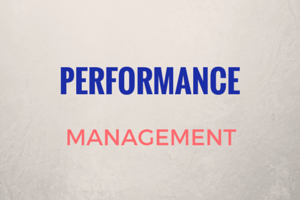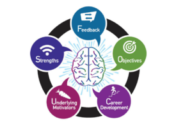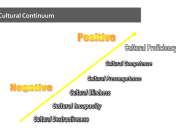Putting an End to Performance Management
 Is it time to put an end to traditional performance management practices? Is there a better way for organizations to develop talent for the future? Kristi Erickson, a partner at PeopleResults, believes the answer to both those questions is “yes.” At a recent DFW HR Roundtable, hosted by Pearson Partners for senior corporate human resources executives in the North Texas area, Erickson led a discussion of why change is necessary. On October 8, she will return for the second part of her presentation on finding the best path forward. Here is a summary of her initial presentation.
Is it time to put an end to traditional performance management practices? Is there a better way for organizations to develop talent for the future? Kristi Erickson, a partner at PeopleResults, believes the answer to both those questions is “yes.” At a recent DFW HR Roundtable, hosted by Pearson Partners for senior corporate human resources executives in the North Texas area, Erickson led a discussion of why change is necessary. On October 8, she will return for the second part of her presentation on finding the best path forward. Here is a summary of her initial presentation.
Q. Why should we consider putting an end to performance management?
A. Basically, it’s an outdated concept that no longer applies to today’s work environment and work force. It is demotivating, it damages trust and closes off potentially valuable dialogue. It focuses on the past, rather than looking forward. It also cuts into productivity, since the average cost of a performance assessment is $2,000 per person. Think about the positive financial impact if you were able to do away with this process. Finally, and perhaps most importantly, the data does not support the value of performance management processes. It’s just become a routine habit for most organizations.
Q. How did performance management begin?
A. With the rise of American industry more than a century ago, workers left their farms and small towns and headed for new factories in the cities. Performance management came into its own in that industrial setting, which was built around assembly-line work, where skills were relatively simple and repeatable. It was a period of lifetime employment, and performance management, when properly applied, could motivate workers to make incremental improvements in their productivity.
Q. Is that type of management still relevant today?
A. No, it isn’t. Today, we have a knowledge-based workforce, where individual and team contributions are essential for organizational performance. Instead of mass conformity, high-performing companies look for creative people with varied, specialized skills who can share their ideas and innovations. It’s a fast-changing, collaborative environment where the average tenure of many careers is just four or five years. Furthermore, today’s leaders value consistent and regular feedback. In today’s working world, an annual performance review that evaluates what a worker accomplished as long as 12 months ago is looking at ancient history.
Q. What are some of the problems that HR managers have seen with performance assessments?
A. Too often, a manager’s personal bias can affect the appraisal of an employee’s performance. These appraisals tend to put employees on the defensive rather than motivating them to do better. Performance assessments can be too focused on quantitative results, rather than qualitative contributions. They can also reinforce the wrong things—especially if an organization’s priorities have recently changed. At best, performance assessments can lead to small improvement rather than big jumps in performance.
Q. If the traditional method is no longer working, should we change our management mindset?
A. Yes, it’s certainly time for a change. First, let’s think about what today’s organizations need. A short list might include the capacity to innovate. Innovation requires critical thinking, regular communication and lots of collaboration. It means finding ways to spur workers’ intrinsic motivations—which may differ from worker to worker—and rewarding creativity and new ideas.
Q. Does that mean finding a new way to measure performance?
A. To a large degree, yes. Managers will always need to evaluate the performance of their workers. Someone who contributes a great deal every week will be held in higher regard than someone who sits back and goes through the motions. But what successful organizations need today is a much greater emphasis on coaching, mentoring, training and development in order to bring out the unique skills, talents and contributions of individual workers.
Q. Are you saying we should shift the focus from managing to developing employees?
A. Absolutely. Development is the key to building a high-performance organization. Investing in coaching can deliver a much higher return than spending money on an annual appraisal. Strategies such as giving employees stretch projects can pay big dividends, both in the short term by tapping their creative ideas and in the long term by strengthening that sense of engagement and loyalty to the organization. With today’s highly mobile workforce, organizations need to keep talented individuals on their payrolls, rather than having them leave for greener pastures. So, successful companies are making that shift from assessing past performance to developing future potential, and keeping their organization on the front line in the competition for attracting and retaining top talent.
Kristi Erickson returns to the DFW HR Roundtable on October 8 to discuss effective alternatives to traditional performance management, and some tips for initiating the transition. The DFW HR Roundtable is complimentary for senior Dallas-area corporate human resources executives. Learn more at /dfw-hr-roundtable/.













